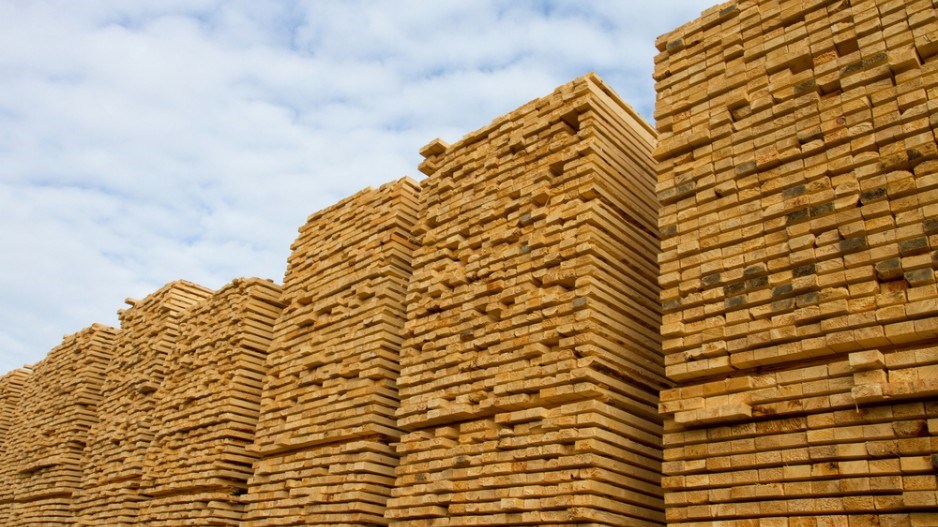If Americans thought lumber prices are insane now, just wait until a new layer of duties on Canadian softwood lumber kicks in later this year, adding fuel to the inflation fire.
The U.S. Department of Commerce’s (DOC) has issued preliminary countervailing and antidumping rates for Canadian softwood lumber. They will double the duties currently in place, from 9% to 18%. This at a time when North American lumber prices are off the charts, and contributing to inflation in the U.S.
“North American benchmarks are setting new records every week,” Scotiabank Economics says in its April 28 commodities forecast.
Since March 2020, the price of Western spruce-pine-fir two-by-fours has soared from slightly less than $400 per thousand board feet to $1,600, according to Natural Resources Canada.
The new duty rates are preliminary and do not go into effect until a final rate is set later this year, according to the BC Lumber Trade Council.
“We find the significant increase in today’s preliminary rates troubling," trade council president Susan Yurkovich said in a news release. “It is particularly egregious given lumber prices are at a record high and demand is skyrocketing in the U.S. as families across the country look to repair, remodel and build new homes.
“As U.S. producers remain unable to meet domestic demand, the ongoing actions of the industry, resulting in these unwarranted tariffs, will ultimately further hurt American consumers by adding to their costs.”
High lumber prices are being driven by a North American home construction and renovation boom. U.S. housing starts have reached their highest level since 2006, according to Scotiabank.
“If Commerce persists with its methodology and finalizes these rates at the end of this year, U.S. lumber consumers will bear the burden of further increased lumber costs,” the BC Lumber Trade Council says.
"B.C. is frustrated and very concerned about the continued effect these unjustified punitive duties are having on our forest sector and on the families in communities throughout B.C. whose livelihoods depend on it.," Katrine Conroy, minister of Forests, Lands, Natural Resource Operations said in a news release.
"These unfair U.S. duties have been compounding the costs for construction, resulting in rising housing costs on both sides of the border. If the duties go up even more, so will the cost of housing and construction. Higher duties on Canadian softwood lumber not only hurt B.C. and Canadian businesses, they are a tax on consumers, including homebuyers in the U.S., that makes housing less affordable for American families and threatens post-pandemic economic recovery.
“Our strong hope is that the U.S. industry will end this decades-long litigation and instead work with us to meet demand for the low-carbon wood products the world wants, including American families," the BC Lumber Trade Council says.
There was some hope that President Joe Biden would be less protectionist than his predecessor, and would be more willing than Donald Trump to try to resolve the issue with some new softwood lumber agreement. But that doesn’t seem to be on Biden's radar.
"I think that we will find that the pressure will mount for the American side to want to return to the negotiatiing table," Kirsten Hillman, Canada’s ambassador to the U.S., said April 8 at a virtual forum hosted by the Council of Forest Industries.
"To be clear, however, neither the administration nor the lumber coalition have signalled an interest in doing so yet."




